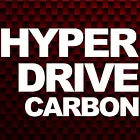Applications
- RC Model Parts
- Race Cars & Automotive
- Drones
- Industrial Robotics
- Musical Instruments
- Bikes
- Furniture
Specifications - Sheet Sizes - Different
| Specification | Value |
|---|---|
| Thickness | 1.0mm - 5.0mm |
| Tolerance | + - 0.2mm |
| Type | Carbon Fibre Sheet |
| Bonding | Epoxy Resin |
| Pattern | Twill Weave (One side only) |
| Finish | Matte Finish ( One side only) |
| Colour | Black |
Twill weave carbon fibre sheets combine a balance of strength and flexibility, making them superior to plain weave sheets in some scenarios. The diagonal weave allows for slightly better drapability and conformability to curved surfaces, enabling their use in complex designs and structures. Despite their lightweight nature, they offer excellent stiffness and resistance to tensile and compressive forces. The matte finish not only adds to the aesthetic value but also minimizes reflections, making them suitable for use in environments where glare reduction is important.
Applications Across Industries
These sheets find applications across a wide range of industries due to their unique properties. In the automotive sector, they are often used for lightweight body panels, interior trims, and custom modifications, contributing to improved fuel efficiency and enhanced performance. In aerospace, their high strength-to-weight ratio is indispensable for structural components. Additionally, their attractive finish makes them popular in consumer goods such as phone cases, wallets, and even sports equipment. Their versatility extends to marine applications, where resistance to corrosion and harsh environmental conditions is crucial.
Sustainability and Future Trends
As industries move toward sustainability, carbon fibre matte twill weave sheets are becoming more prominent due to their potential for recycling and energy-efficient applications. Advances in resin systems and manufacturing techniques are also reducing the environmental footprint of carbon fibre production. The future holds promise for further innovation, including hybrid materials that combine carbon fibre with other composites to enhance performance while minimizing cost. Moreover, the growing emphasis on 3D printing and customization is paving the way for more tailored and efficient use of these materials.
Technical Data:
-
Material Composition
- Fiber Type: Standard modulus carbon fibers (e.g., Toray T300 or T700
- Resin Type: Epoxy resin, optimized for resin infusion
- Fiber Volume Fraction (FVF): ~45-55%
- Resin Content: ~45-55%
-
Physical Properties
- Sheet Thickness: 1 mm – 5 mm (customisable based on application)
- Surface Finish: Single-sided high-gloss cosmetic finish (visible fiber weave)
- Surface Defect Tolerance: Minimal air bubbles, pinholes may be more common than in autoclave-cured sheets
- Density: ~1.4 – 1.5 g/cm³
-
Mechanical Properties
- Tensile Strength: 400 – 600 MPa
- Tensile Modulus: 40 – 60 GPa
- Flexural Strength: 700 – 1,000 MPa
- Flexural Modulus: 40 – 50 GPa
- Interlaminar Shear Strength (ILSS): 25 – 35 MPa
-
Thermal Properties
- Glass Transition Temperature (Tg): ~60°C – 80°C (dependent on resin system)
- Coefficient of Thermal Expansion (CTE): Low, but higher than autoclave-cured sheets (~1-5 ppm/°C)
- Service Temperature: -40°C to +80°C (can vary based on resin system)
-
Dimensional Tolerances
- Flatness: <1.0 mm over 1 m² area
- Thickness Tolerance: ± 0.2 mm (depending on sheet thickness)
- Edge Finish: May require post-processing (e.g., sanding or CNC trimming) for clean edges
-
Environmental Resistance
- UV Resistance: Moderate (may require protective clear coat for long-term exposure)
- Corrosion Resistance: Excellent
- Moisture Absorption: <1.0%
Manufacturing Process
- Resin Infusion: A vacuum draws resin into the carbon fiber layers placed on a sheet of glass. This process ensures good wet-out of fibers but may result in slightly higher void content compared to autoclave curing.
- Room Temperature Curing: The infused resin cures at ambient temperatures, typically requiring 24-48 hours for full cure. Post-curing at slightly elevated temperatures may improve final mechanical properties.
Applications
- Automotive: Non-structural components, interior trim, decorative panels
- Construction: Lightweight panels for architectural use
- Consumer Goods: Electronics casings, furniture components
- Marine: Deck panels, lightweight fixtures
- Recreational: Drones, RC vehicles, and sports equipment









